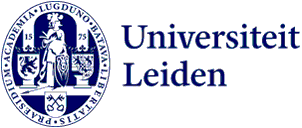
‘Whenever you need European partners, Una Europa should be your first step’
Eight Leiden University research teams recently received €15,000 each to take their research to the next level through Una Europa. Dario Fazzi, one of the selected researchers and professor of Transatlantic Environmental History, shares how Una Europa helps him expand a Leiden-based project into a international collaboration. ‘Whenever you need European partners, Una Europa should be your first step’

Hi Dario, how did your project start?
‘In 2024 we got a Kiem grant from Leiden University, a seed grant that lets us develop interdisciplinary projects with colleagues from different faculties. I wanted to bring the conversation about how societies should react to existential risks in our time to Leiden. So we organized this workshop to discuss how to deal with the evolving notion of risk. Afterwards we wondered: What’s next? How do we communicate our findings to a broader audience? We concluded that one of the things that we can do, as academics, is to teach about these issues and hope to spread as much awareness as we can. We hoped, in a way, to ignite cultural change by integrating our findings in applied science into teaching.’
Is that when you decided to try working with Una Europa partners?
‘Yes, this is where Una Europa came into the picture. What would they think about translating our common guidelines from the workshop into a syllabus that can be offered across universities and Una Europa partners, despite our different backgrounds, sources, goals and methods?’
In 2024, Dario applied for a special grant offered by Leiden University's Una Europa team to encourage collaboration with Una Europa partners. Similar opportunities for collaboration are often offered by Una Europa.
What will you do with your new Una Europa partners?
‘The idea is to start with online seminars within Europe, and discuss assignments, learning goals and formats together. With our partners – KU Leuven, the University of Edinburgh, the Complutense University of Madrid and the Roosevelt Institute for American Studies – we will also organize a final seminar to give our common syllabus shape, polish it, and test it. And then in the spring of 2026 we will try to implement the syllabus. We will deliver a series of teaching guidelines that aim at being so flexible that they can immediately be used by all our European partners. It’s very practical.’
Any tips for colleagues?
- ‘Make use of the Una Europa scientific infrastructure to pursue your own research. It’s a European hub, not a separate world, so launch a conversation with any experienced colleague or Una Europa officer who can help you. My recommendation would be to take the initiative and reach out to those colleagues representing your university in one of the Una Europa self-steering committees and they’ll share ideas and ways on how to implement your international cooperation or project.
- Just put together an idea and apply for an opportunity like the current seed funding call. We are used to high risk, high gain proposals, but with Una Europa the risk is very low and Una seed funding can be crucial to helping you develop and deepen your ideas. In other words, if your project has already a shape and it is already a well-working and funded research, then you may be too late to apply for this seed grant. But if you need support to expand and upscale what you are working on, then it is ideal If you’ve already thought through the whole thing, you are basically too late.
- Talk to colleagues working on other Una Europa projects. Just reach out to them, you are partners. It’s the best brainstorm session the university can offer.’
All Una Europa-Kiem Grants
The following projects from Leiden University have received an Una Europa Kiem Grant of €15.000. See for more information on the webpage Seed Funding
- Hendrik Vrijburg (Faculty of Law): Eliciting willingness to pay for domestic and international climate change policies
- Dario Fazzi (Faculty of Humanites): Teaching Risk in the Anthropocene
- Francesco Ragazzi (Social and Behavioural Sciences): ReCNTR Lab Europe
- Mariska Kret (Social and Behavioural Sciences): Mapping the World's Emotional Expressions: Creating a Global Atlas for Inclusive AI and Emotion Research
- Marta Artola (Faculty of Science): HARP: Harnessing RNA Pseudoknot Targeting for Antiviral Discovery
- Akrati Saxena (Social and Behavioural Sciences): Modeling the Impact of Affirmative Actions in Scientific Collaboration
- Rosanne Govaarts (Social and Behavioural Sciences): The developing brain in Duchenne muscular dystrophy
- Rebecca Schaefer (Social and Behavioural Sciences): Music for movement learning: Brain plasticity, aging, and stroke recovery
Get involved in Una Europa!
Una Europa is a network of 11 leading research universities, including Leiden University. Would you like to become actively involved in Una Europa? Are you interested in seed funding, an exchange or the other activities and opportunities that are regularly offered? Then sign up for the newsletter or join our Teams group.
